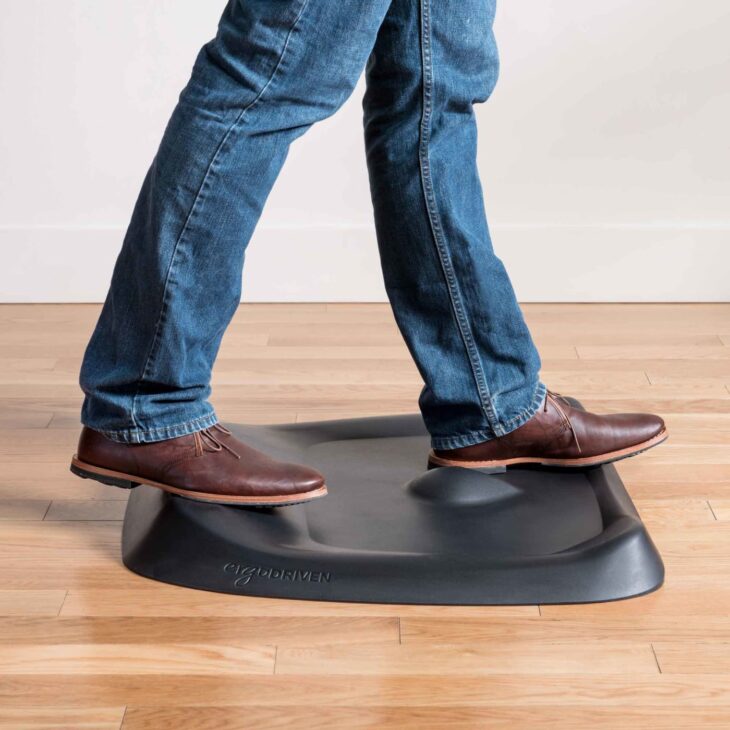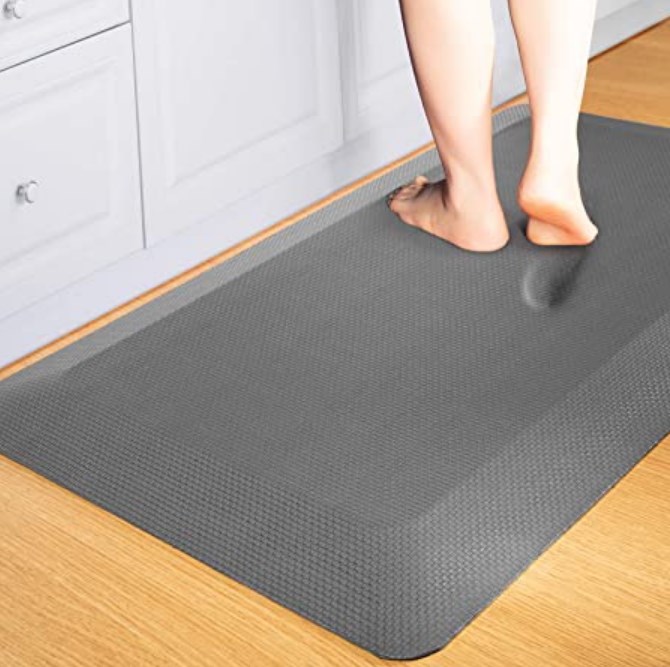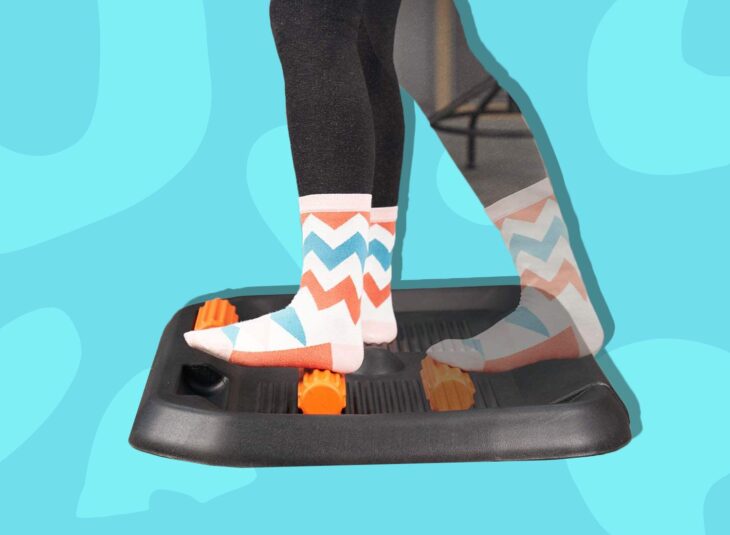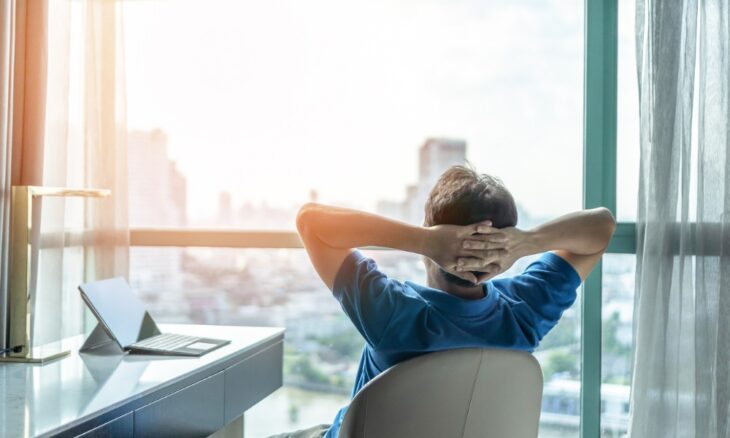The workplace and the work we do make up a large part of our lives, we spend more hours at work than with members of our own family. Work and circumstances in the workplace significantly affect our health, both physically and mentally. When it comes to employee health and well-being, many factors tend to be neglected, influencing a decrease in working efficiency.
According to Safe-Flex one such factor is the surface employees walk on. Every employer wants to make sure their business runs well and has all the preconditions of becoming successful. One of the key elements of a successful business is the productivity of its workers.
So, the important question every employer needs the answer to, is what can be done to create an atmosphere where employees feel taken care of and have their productivity at maximum? A part of the answer surely includes anti-fatigue measures. And there’s a product aiming to combat fatigue which gave great results. It’s called the anti-fatigue mat.
Why would mats normally used by companies be developed and promoted in such a way to prevent fatigue? There are tons of reasons why, and this article will try to sum up the most important ones.
Contents
1. Health issues caused by standing can be prevented

Source: fully.com
If your workers have to spend most of their working hours standing, it’s obvious why a surface they stand on is important. If they are in constant contact with hard, wet surfaces, it can be quite dangerous for their health. When exposed to these conditions, the neck, feet, and joints will suffer the most, causing serious health issues.
The discomfort of these physical pressures usually reduces the work efficiency of the staff and the coefficient of physical readiness. For example, such workers will feel pressure, discomfort, joint contraction, and loss of body energy.
Some research has shown that 80% of employees exposed to these conditions suffer pain in feet and calf muscles, which are connected to long-term continuous standing. Therefore, the anti-fatigue mat is a fantastic solution for workers and a very good way to alleviate fatigue. With anti-fatigue mats, companies can achieve the goal of effectively improving working conditions, and workers can work safer and more comfortably.
2. Safe footing

Source: amazon.com
In certain environments, such as production facilities, where workers are forced to walk from one point to another, the surface they walk on becomes important. Their productivity can be compared to the productivity of an athlete. In order to deliver great results, an athlete needs good equipment and good field conditions (environment).
Installing a surface comfortable to walk on, that has such structure to prevent sliding, will ensure a safer and faster movement. When they move fast and safely, daily tasks can be performed faster. Therefore, efficiency and well-being are both taken care of.
3. Energy-boosting

Source: bestproducts.com
Have you ever thought about the difference between comfort and ergonomics? Comfort is something you want to have at home, which is why you aim for softer surfaces to walk on, or to rest on. When buying a sofa, for example. You need it for resting or enjoying a good book. Comfort in this case can result in sleeping, which might not be a good idea for a working environment.
Who wants to have sleeping workers? Ergonomics is what you need at your workplace. Unlike comfort, ergonomics provides energy-saving, keeping workers focused on achieving the goal. All of this while being free from feeling discomfort under their feet. Walking on an ergonomic surface feels easy and smooth.
4. Stress-free environment

Source: hcamag.com
It is only natural to feel highly stressed when experiencing physical discomfort. This kind of stress is felt both on the body and in the mind. A combination of two makes it impossible to concentrate on work.
When you think about it, we spend a third of our day at work and if we are constantly exposed to stressful situations it will negatively affect all aspects of our lives. We will be dissatisfied, frustrated, depressed and we will be like that not only at work but also at home, with our family and friends.
Excessive and prolonged stress can quickly turn into anxiety which is reflected on our body by a series of unpleasant symptoms such as headaches, digestive problems, high blood pressure, rapid pulse as well as sleep problems.
Anti-fatigue mats reduce both physical and mental stress. When being able to walk smoothly, overall physical readiness can be improved. Working will have the same effect as a fitness workout. It is well known how working out regularly can reduce stress.
By buying anti-fatigue mats you’ll create an environment from which workers will not only achieve outstanding results but come home fresh and their family life will flourish as well. It’s a win-win situation. A worker becomes one satisfied individual.
5. Anti-fatigue mats can be used as pathways

Source: popsci.com
In huge productions, it is important to create pathways, to save time and prevent confusion when workers have to move fast. As they can be designed according to business-specific needs, pathways can be printed on the surface for a mat to have an additional function.
Not only will the workers feel comfortable walking, but they will also spend less time thinking about how to go from point A to point B, having more time to be productive.
6. It’s a special technology
Anti-fatigue mats use a unique rubber as the main material that can maintain the long-term durability of the product. For example, the anti-fatigue spherical mat is designed with a honeycomb structure as a surface layer so that it can effectively absorb or evacuate liquid. The anti-fatigue mat has a unique bond structure and the surface is non-slippery, which can prevent falls and is also very convenient for cleaning.
The spherical anti-fatigue mat is shaped by injection, which has better antistatic and anti-fatigue effects. Such technology gives physical ease to anyone standing or walking on it. For all the reasons written above, investing in anti-fatigue seems a good way to create an atmosphere of well-being and creativity. Moreover, it will earn any employer positive ratings, as someone who cares for how people feel at work.
